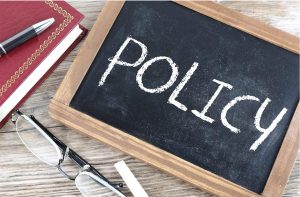 In June 2020, the U.S. Supreme Court issued a highly publicized ruling that the federal law on equal employment opportunity, known as Title VII, extends to employment decisions based upon the sexual preference or transgender status of an employee. The majority decision is based on what it called the “ordinary public meaning of Title VII’s command that it is ‘unlawful…for an employer to fail or refuse to hire or to discharge any individual, or otherwise discriminate against any individual with respect to his compensation, terms, conditions, or privileges of employment, because of such individual’s…sex….’” The majority relied on the “because of sex” language as the reason sexual preference and gender identity must be covered by the law.
In June 2020, the U.S. Supreme Court issued a highly publicized ruling that the federal law on equal employment opportunity, known as Title VII, extends to employment decisions based upon the sexual preference or transgender status of an employee. The majority decision is based on what it called the “ordinary public meaning of Title VII’s command that it is ‘unlawful…for an employer to fail or refuse to hire or to discharge any individual, or otherwise discriminate against any individual with respect to his compensation, terms, conditions, or privileges of employment, because of such individual’s…sex….’” The majority relied on the “because of sex” language as the reason sexual preference and gender identity must be covered by the law.
This follows on actions by some states and localities that had broadened protections against discrimination and harassment on these bases. For example, in its 2020 session, the Virginia General Assembly enacted a law expanding the Virginia Human Rights law to provide protections against discrimination based upon sexual preference or gender identity.
What does this change mean to your dealership?
The documentation in your dealership describing your policy against discrimination and harassment should be amended to be clear that it includes the protections granted under federal law, or the state or local law under which you operate, to include sexual preference or gender identity.
Also be sure that your process for handling complaints about discrimination or harassment is also up to date. As we have advised, a policy to prevent discrimination and harassment has four critical elements.
- The Policy. The policy in your handbook or other written format should be reviewed to make sure it covers the protections of the laws under which you operate. That policy must be backed by a complete complaint handling system – one in which every matter that comes to the attention of management by any means is supervised and tracked by a senior manager to be sure it is fully. Employees should be trained to know your policy, and to know the method by which they can bring concerns to management. There may be defenses in a lawsuit if an employee does not take advantage of the company’s complaint handling system, but the company must be prepared to show that the employee knew of or had the ability to learn of the complaint process. Managers must know how to handle an investigation into a situation that comes to their attention.
- The Investigation. Proper methods of investigation do not come naturally to most managers. They must be trained. They must know to maintain a neutral demeanor throughout the process and not appear to prejudge any complaint or defense. They must be instructed to properly gather facts from a complainant, the subject of a complaint, and any witnesses. Most critically, they should be trained to evaluate the facts that they gather so that they come do a decision using factors that should be properly considered.
- The Decision. Should the subject of the complaint be terminated? If not termination, is lesser discipline appropriate? Or is no discipline appropriate? Regardless of the outcome, always report the decision to the complainant. Click here for a checklist for policies and procedures of the dealership for preventing discrimination and harassment.
The employment atmosphere is changing rapidly, not just because of the Supreme Court decision but also because of various strengthening social justice movements. You must be in a position to resolve concerns in your dealership quickly and effectively, and a strong policy backed by a solid, up-to-date complaint handling system is essential.
